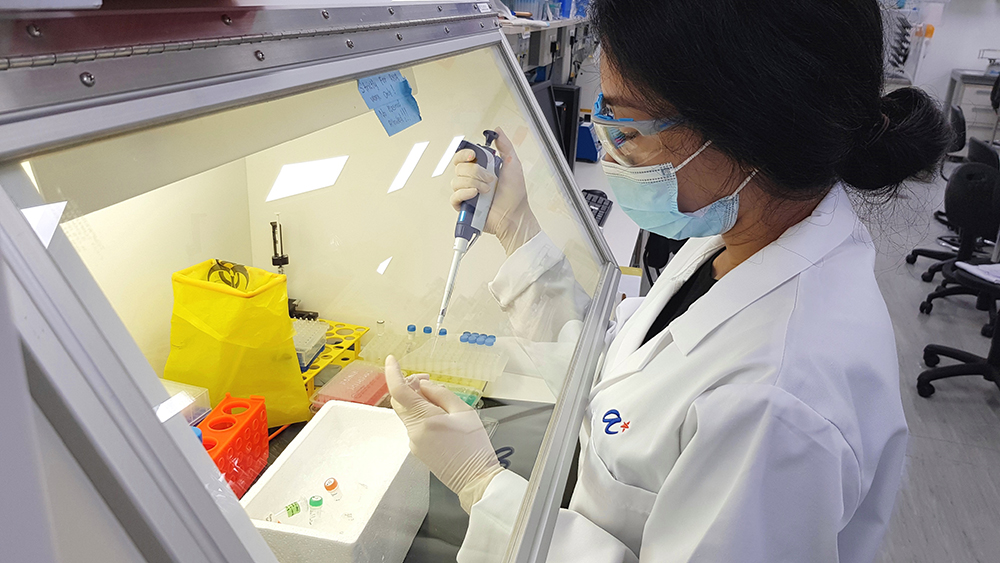Cancer drug ETC-159 reaches new milestone in clinical trials

A scientist from the Experimental Drug Development Centre (EDDC), A*STAR, preparing ETC-159 clinical samples for real-time Reverse Transcription-Polymerase Chain Reaction (RT-PCR) which amplifies the genetic material.
A made-in-Singapore cancer drug, called ETC-159, has reached a new developmental milestone in advancing to Phase 1B of clinical trials and is being administered to patients in this new phase of clinical testing. For the first time, the efficacy of this drug will be assessed, in addition to its safety in cancer patients.
ETC-159 was jointly developed by Duke-NUS Medical School (Duke-NUS) and the Agency for Science, Technology and Research (A*STAR). The drug targets a range of solid tumours including colorectal, endometrial, ovarian and pancreatic cancers, which contribute to a significant fraction of Singapore’s cancer burden. A subset of these cancers are caused by hyperactivity in a cell signalling pathway known as the Wnt pathway.
The clinical trial will use ETC-159 to block the Wnt pathway so that immune cells can infiltrate the tumour. The trial will also combine ETC-159 with the immune checkpoint inhibitor pembrolizumab to stimulate the immune cells to kill tumour cells.
Patients will come from two sites in Singapore and up to seven clinical sites in the United States. The trial is expected to be completed by 2023 at the latest.
.jpg?sfvrsn=93fe3890_0)
Scientists from the Experimental Drug Development Centre (EDDC), A*STAR, performing real-time Reverse Transcription-Polymerase Chain Reaction (RT-PCR) to amplify the genetic material from ETC-159 clinical samples.
Read More:
A*STAR celebrates International Women's Day

From groundbreaking discoveries to cutting-edge research, our researchers are empowering the next generation of female science, technology, engineering and mathematics (STEM) leaders.
Get inspired by our #WomeninSTEM
